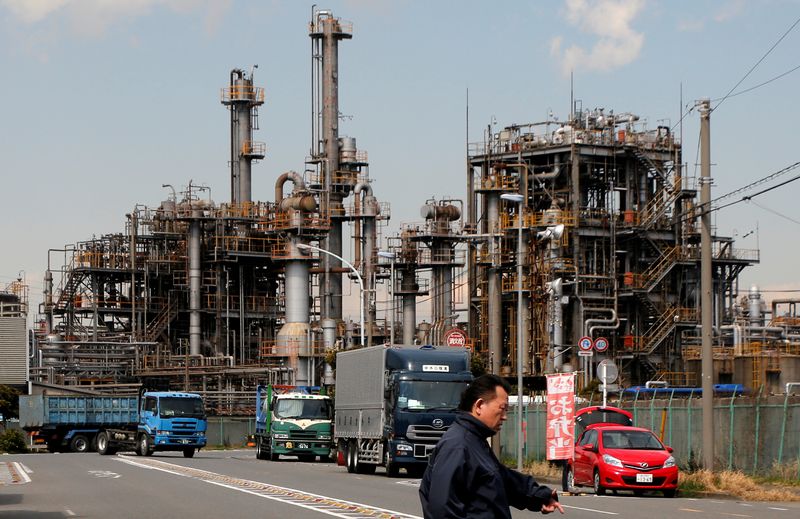Japan factory activity shrinks for third month in January

FILE PHOTO-A worker walks near a factory at the Keihin industrial zone in Kawasaki, Japan, March 8, 2017. REUTERS/Toru Hanai
SPGI
+0.60%
Add to/Remove from Watchlist
Add to Watchlist
Add Position
Position added successfully to:
Please name your holdings portfolio
Type:
BUY
SELL
Date:
Amount:
Price
Point Value:
Leverage:
1:1
1:10
1:25
1:50
1:100
1:200
1:400
1:500
1:1000
Commission:
Create New Watchlist
Create
Create a new holdings portfolio
Add
Create
+ Add another position
Close
TOKYO (Reuters) — Japan’s factory activity contracted for a third straight month in January, a private survey showed on Wednesday, although manufacturers’ outlook remained upbeat on improved supply and price conditions.
Amid worsening global economic conditions, Japanese companies are facing calls for higher wage hikes at spring labour talks to counter inflation and support the consumption-led recovery in the world’s third-largest economy.
The au Jibun Bank Japan Manufacturing Purchasing Managers’ Index was at 48.9 in January, unchanged from the flash reading and the previous month’s final figure, which was the weakest level since October 2020.
«Subdued global economic conditions continued to hold back customer demand across the Japanese manufacturing sector,» said Tim Moore, economics director at S&P Global (NYSE:SPGI) Market Intelligence, which compiles the survey.
GRAPHIC: Japan’s factory activity at 26-month low — https://www.reuters.com/graphics/JAPAN-ECONOMY/PMI/jnvwyxyjqvw/chart.png
The data follows weak December factory output figuresreleased on Tuesday.
Output and new orders contracted for a seventh consecutive month in January, although at a slower pace than in the previous two months, the S&P survey’s subindexes showed.
On the bright side, supplier delays were the least prevalent since February 2021, suggesting improvement in the tight supply of parts such as semiconductors. Input and output price inflation were the slowest in 16 months.
«Hopes of a sustained improvement in supplier performance, alongside a reduced headwind from the pandemic, helped to support a further upturn in business confidence at the start of 2023,» Moore said.
Around three times as many manufacturers in the survey expect production to expand in the next 12 months as those that foresee a contraction, according to Moore.
The subindex gauging respondents’ future output rose to a three-month high, the data showed.




